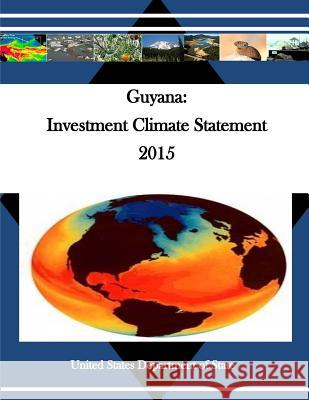Guyana: Investment Climate Statement 2015 » książka
Guyana: Investment Climate Statement 2015
ISBN-13: 9781530701117 / Angielski / Miękka / 2016 / 24 str.
Guyana is a country located in South America's North Atlantic coast. During 2014, Guyana's investment climate showed no signs of recovery from the downward turn of 2013. Political gridlock and infighting hampered the country's development efforts on several fronts. The Amaila Falls Hydropower Project, which would have been the largest capital project in the country's history, fell apart after a decade of planning when U.S. developer and equity partner Sithe Global withdrew from the multinational development team in August 2013. The company had concerns related to political risk following objections to the venture by the country's largest opposition party. Guyana has failed to crack down on money laundering, and parliament has been unable to pass legislation strengthening Anti-Money Laundering/Countering the Financing of Terrorism (AML/CFT) laws. Consequently in November 2014, the Caribbean Financial Action Task Force (CFATF) recommended that its members implement counter measures to protect their financial systems from the ongoing money laundering and terrorist financing risks emanating from Guyana. CFATF also referred Guyana to its parent body, the international Financial Action Task Force (FATF), for review. Although FATF has not concluded its review of Guyana, consumers and importers are already complaining of increased costs and delays in processing international financial and trade transactions. The government continues to encourage foreign investment but with limited success outside of the gold mining sector. Perceptions of corruption, inefficient government, inadequate infrastructure, and crime remain barriers to attracting foreign investment. Early general elections were held on May 11, 2015. The APNU-Alliance for Change party won 33 out of 65 seats in the National Assembly and David Granger was sworn in as President on May 16th, 2015.The impending elections slowed down current and prospective investment since implementation of many governmental projects were either put on hold or curtailed, until after the elections. Presentation of the National Budget, which has a constitutional deadline of April 30th, was also affected.
Zawartość książki może nie spełniać oczekiwań – reklamacje nie obejmują treści, która mogła nie być redakcyjnie ani merytorycznie opracowana.











